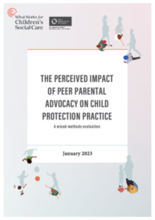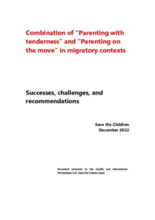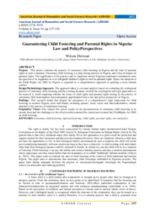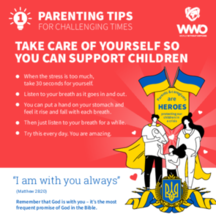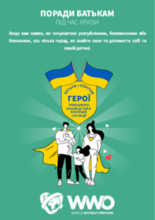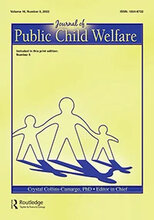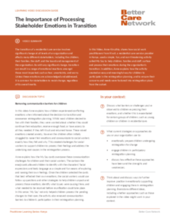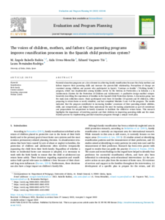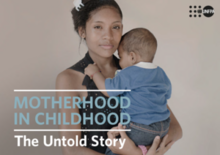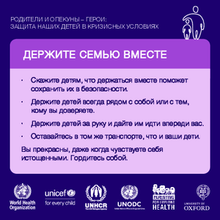Displaying 51 - 60 of 947
This report presents the findings from a mixed-methods evaluation of peer parental advocacy (PPA) in the London Borough of Camden.
The objective of this Save the Children Spain document is to gather the key findings of the combination of “Parenting with tenderness” and “Parenting on the move” in migratory contexts. It also seeks to improve the quality of its implementation in the context of Mexican migration, based on good practices and lessons learned.
This article examines the practice of customary child fostering in Nigeria and the state of parental rights in such a situation. The significance of the practice and its impact in mostly Nigerian traditional communities raises the question of its regulation in order to safeguard children's rights as well as parental rights.
This video and attached parenting tips offer simple and practical recommendations for Ukrainian parents on how to help themselves and their children to overcome various crisis situations.
У цьому відео ми пропонуємо прості і практичні рекомендації про те, як у цей непростий час допомагати собі та своїм дітям долати різні кризові ситуації.
This paper reviews the range of factors state legislation includes in the U.S., reviews scant existing literature on how termination of parental rights (TPRs) may effect youth, and proposes several options for ways that unproductive TPRs can be reduced, and timely reinstatements increased.
In this video, Anne Kinuthia, shares how social work practitioners from Kivuli, a residential care service provider in Kenya, used a simple, fun, and non-threatening activity called My Say to help children, families and staff, surface and process their emotions during the organization’s transition.
This research highlights the importance of involving parents and their children in improving parenting skills and the reunification process by implementing parental education programs through a unique work plan. This study examined the experiences of families in the Spanish Child Protection System.
This report’s findings on the prevalence of motherhood in childhood across the globe and repeat adolescent childbearing highlight that more needs to be done to design, implement and evaluate programmes that target the youngest starters and girls at risk of rapid and repeat adolescent births.

